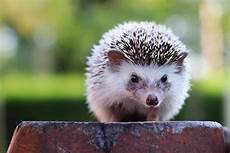Can You Clone a Pet?
The idea of cloning a beloved pet may seem like something out of a science fiction movie, but it's actually a reality that's becoming increasingly accessible. In this article, we'll explore the process of pet cloning, its benefits and drawbacks, and the ethical considerations surrounding it.

Benefits of Pet Cloning
1. Preserving the Memory of a Loved Pet:
Pet cloning can provide a way to keep the memory of a cherished pet alive by creating a genetically identical copy. This can be particularly meaningful for individuals who have formed a deep bond with their pet and are struggling with its loss.
2. Continuation of a Bloodline:
For those interested in preserving the genetic heritage of a particular breed or lineage, pet cloning can offer a means to continue a bloodline that might otherwise be lost due to the death of a valuable animal.
3. Potential Therapeutic Applications:
Pet cloning holds promise in the field of regenerative medicine. By studying cloned animals, scientists may gain insights into genetic disorders and develop new treatments that could benefit both animals and humans.
Drawbacks of Pet Cloning
1. Ethical Concerns:
Pet cloning raises a number of ethical concerns, including the question of whether it's morally acceptable to create a new animal simply for the sake of replicating a deceased one. Some argue that cloning undermines the inherent value of individual life and treats animals as mere commodities.
2. Health Risks:
Cloned animals may face an increased risk of health issues due to genetic abnormalities that can occur during the cloning process. This can lead to various health problems, including an increased susceptibility to diseases and a shorter lifespan.
3. Financial Considerations:
Pet cloning is an expensive procedure that can cost tens of thousands of dollars. This makes it an option that is only accessible to a small portion of pet owners.
Ethical Considerations
1. The Value of Individual Life:
One of the key ethical considerations surrounding pet cloning is the question of whether it's appropriate to create a new animal that is genetically identical to a deceased one. Some argue that this undermines the inherent value of individual life and treats animals as mere commodities.
2. The Right to Create Life:
Another ethical consideration is whether humans have the right to create new life, especially when it comes to cloning animals for the sole purpose of replicating a deceased pet. Some argue that this is a form of hubris and that humans should not interfere with the natural order.
3. The Potential for Abuse:
Pet cloning also raises concerns about the potential for abuse. For example, some worry that the technology could be used to create designer pets with specific traits, leading to a commodification of animals and a further erosion of their inherent value.
In conclusion, pet cloning is a complex issue with both potential benefits and drawbacks. While it may provide a way to preserve the memory of a beloved pet or continue a bloodline, it also raises ethical concerns and health risks that need to be carefully considered. Ultimately, the decision of whether or not to clone a pet is a personal one that should be made after careful reflection and consideration of all the factors involved.
Declaration: All article resources on this website, unless otherwise specified or labeled, are collected from online resources. If the content on this website infringes on the legitimate rights and interests of the original author, you can contact this website to delete it.






